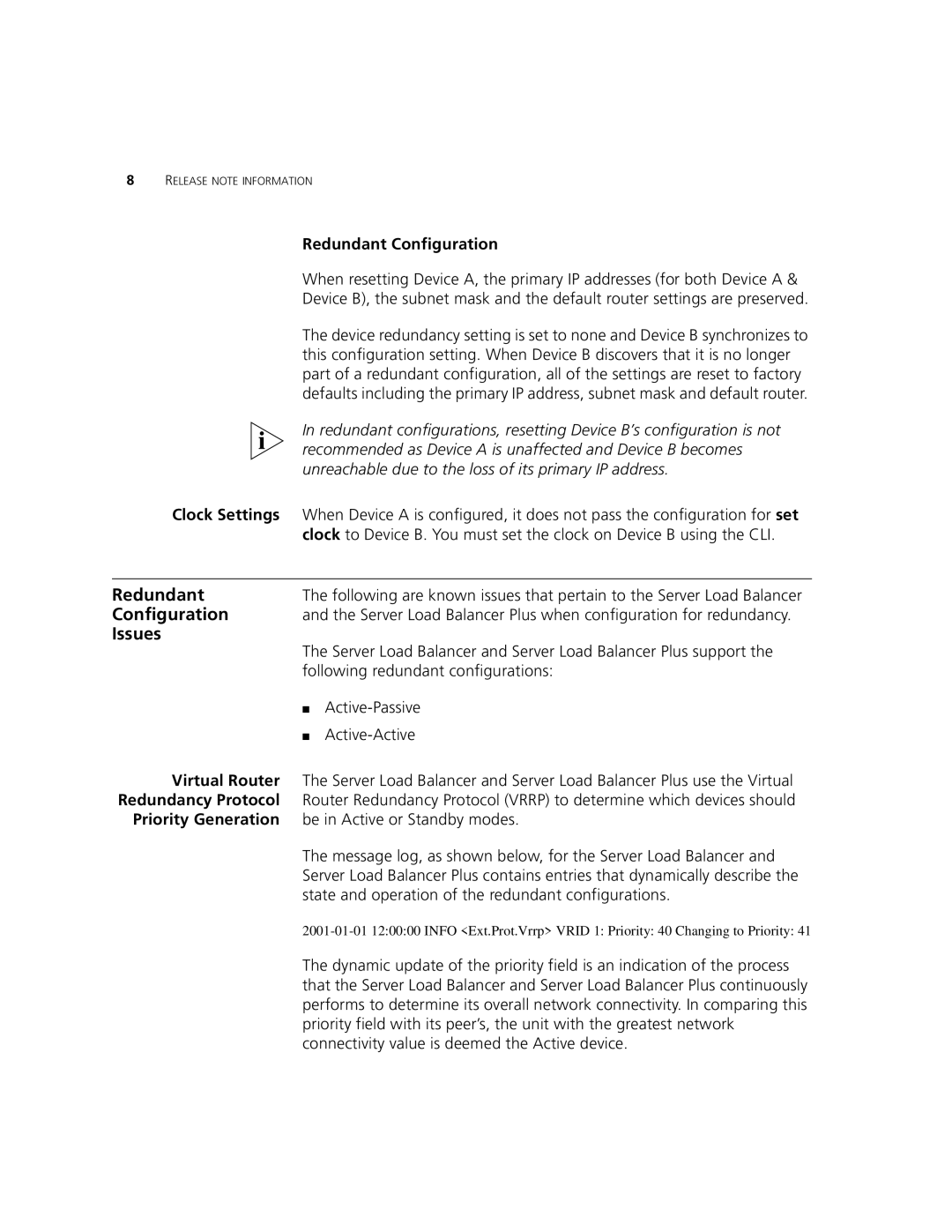8RELEASE NOTE INFORMATION
| Redundant Configuration | |
| When resetting Device A, the primary IP addresses (for both Device A & | |
| Device B), the subnet mask and the default router settings are preserved. | |
| The device redundancy setting is set to none and Device B synchronizes to | |
| this configuration setting. When Device B discovers that it is no longer | |
| part of a redundant configuration, all of the settings are reset to factory | |
| defaults including the primary IP address, subnet mask and default router. | |
| In redundant configurations, resetting Device B’s configuration is not | |
| recommended as Device A is unaffected and Device B becomes | |
| unreachable due to the loss of its primary IP address. | |
Clock Settings | When Device A is configured, it does not pass the configuration for set | |
| clock to Device B. You must set the clock on Device B using the CLI. | |
|
| |
Redundant | The following are known issues that pertain to the Server Load Balancer | |
Configuration | and the Server Load Balancer Plus when configuration for redundancy. | |
Issues | The Server Load Balancer and Server Load Balancer Plus support the | |
| ||
| following redundant configurations: | |
| ■ | |
| ■ | |
Virtual Router | The Server Load Balancer and Server Load Balancer Plus use the Virtual | |
Redundancy Protocol | Router Redundancy Protocol (VRRP) to determine which devices should | |
Priority Generation | be in Active or Standby modes. | |
The message log, as shown below, for the Server Load Balancer and Server Load Balancer Plus contains entries that dynamically describe the state and operation of the redundant configurations.
The dynamic update of the priority field is an indication of the process that the Server Load Balancer and Server Load Balancer Plus continuously performs to determine its overall network connectivity. In comparing this priority field with its peer’s, the unit with the greatest network connectivity value is deemed the Active device.
